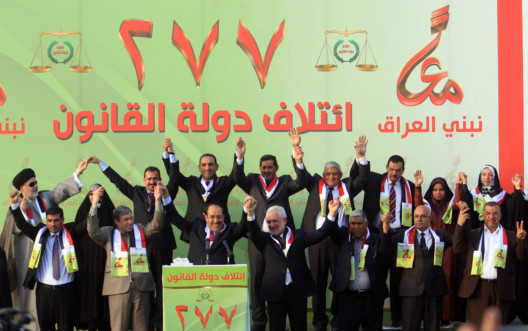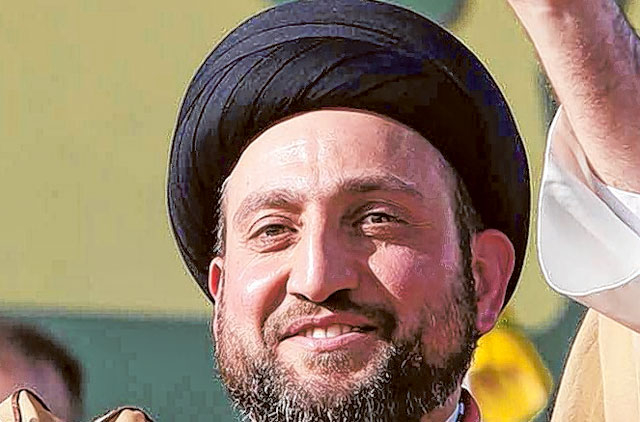
Amman: Prime Minister Nouri Al Maliki was first elected in 2006 and then reelected following a nine-month impasse after the last national election in March 2010.
Al Maliki’s State of Law Coalition (SLC) won 89 of 325 seats in that election, roughly half of all seats elected from areas in which Shiite voters predominate.
Al Maliki’s two main Shiite rivals, the Sadrist Ahrar Bloc and the Islamic Supreme Council of Iraq (ISCI), won 40 and 20 seats, respectively.
None of the key faces have changed since 2010, although the configurations have.
ISCI itself rebounded from that loss, coming in second to the SLC in last year’s provincial elections with nearly 20 per cent of Shiite seats (compared to 33 per cent by Al Maliki’s SLC).
The Sadrists suffered substantially, falling behind ISCI, and then in recent months suffered internal divisions after their leader, Moqtada Al Sadr, decided to distance himself from politics in order to focus on building his religious network.
The main plank of Al Maliki’s reelection platform is security. Terrorist attacks by the Al Qaida-originated Islamic State of Iraq & Al Sham (Isis) were progressing steadily last year, and Al Maliki had united public support in targeting them in Anbar’s western desert.
Then in December he decided to target a Sunni protest camp in Anbar’s provincial capital of Ramadi, falsely claiming it was an “Al Qaida headquarters.”
Government missteps — including mass arrests of Sunnis which swept up many innocents — reignited the broader insurgency. Military operations have proven inconclusive, yet Al Maliki has been able to use his control of state media, combined with having military officers parrot his line about the war to independent media, to create an image of himself as a champion against terrorism and a protector of the Shiite.
Al Maliki’s other core theme is economy and development, and his priorities have been increased housing and electricity. And indeed there are many new houses, with Al Maliki almost always announcing a new housing complex in person.
And after years of delays, electricity service is improving. While little of the country has 24-hour electricity, and outages could spike this summer as demand surges, improvement is tangible.
ISCI is likely to be Al Maliki’s chief competitor. Their revival last year came from superior organisation and a campaign focused on public service projects, and yet while their rallies have been well-attended, this year’s security-focused environment does not play to their strength.
If there is anywhere to watch for ISCI it is Basra, where they elected Governor Majid Al Nasrawi last year and he has tried to project the image of a proactive, service-oriented governor. Al Maliki has sought repeatedly to have him removed, but without success.
The Sadrist Ahrar Bloc seems listless without their leader, and their inability to come up with a credible alternative vision on security issues has made this worse, burdened by their years of militia activity with the Mahdi Army.
For example, Hakeem Al Zamli, the Sadrist on parliament’s Defence Committee, appeared in a discussion on state TV recently, mixing exhortations of support for the military with highly caveated suggestions as to how the security services might be run better.
But aside from the political environment among the Shiite which makes it hard to appear to be criticising the military, Zamli himself is widely believed to have led a militia when he was an official in the Health Ministry back during the 2005-2006 civil war.
If there is a bright spot for the Sadrists it is that Maysan Governor Ali Duwai and Baghdad Governor Ali Al Tamimi have both cultivated an image of technocratic earnestness which has helped them get over their image from the 2006-2009 period as guys in black shirts and guns who went from setting up checkpoints to running for office.
Duwai was first elected in 2009 and returned again last year, and with his trademark blue coveralls has become a surprise media success.
After ISCI and the Sadrists there are four third-tier coalitions to note. The Iraqi Fidelity Coalition, headed by MP Sami Al Askari, is a potential Al Maliki ally.
Askari continues to identify with the SLC in parliament, and can be expected to throw his support behind Al Maliki assuming he does well enough.
The IFC’s second leader is Najaf Governor Adnan Al Zurfi, who is very much his own man and has gone back and forth between working and fighting with Al Maliki over the years. The group’s third figure is Baghdad Mayor Naim Abub, a former Sadrist who has a reputation for opportunism and aligned with Al Maliki just in time to be appointed acting mayor last November.
Another is the National Fidelity Alliance, whose leaders include Wael Abd Al Latif, a former judge and governor from Basra, and Izzat Al Shahbandar, a former Al Maliki ally who continues to support the prime minister on most issues, but who has been perhaps the most outspoken Shiite figure criticising the random arrests of Sunnis.
The Iraq Coalition is a well-funded group which includes both Sunni and Shiite leaders. But its key Shiite leaders performed poorly in last year’s provincials.
Then there is Eyad Allawi, whose cross-sectarian Nationalist Coalition will likely get most of its seats in Sunni areas, as it did in the 2013 provincial elections.
Allawi won about one-seventh of Shiite seats in 2010, an strong showing for a secular figure, but largely lives outside the country and has taken to reflexively taking the side of Sunnis and Kurds in their conflicts with Al Maliki, including on issues like debaathification in which Al Maliki’s views simply reflect those of the Shiite voting public.
Al Maliki may well repeat his 2010 performance, with his bloc winning as many seats as all other Shiite blocs combined.
But opposition to his reelection has stiffened significantly in the past four years. If he falls short, the search for a new lowest-common-denominator candidate will begin, and Al Maliki may find it wisest to use his leverage to at least ensure his successor is someone who will protect him when he no longer controls the apparatus of state.













